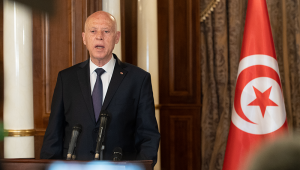Political instability risks exacerbating economic conditions in the country marked by high inflation and a slipping currency, triggering a chain reaction of bankruptcies.
Fadi Hakura, a consulting fellow in the Europe Programme at the London-based Chatham House think-tank, says financial markets are unimpressed by stabilisation measures taken so far.
The Turkish economy has fallen into recession and is suffering high inflation following a long period of strong growth under president Recep Tayyip Erdogan.
Economic activity in the final quarter of 2018 was 3% lower than the previous year and unemployment is rising – hitting 13.5% in December – and the currency has been volatile.
In February consumer prices were 20% higher than in the same month last year, and the Turkish central bank’s response to rising inflation has been to raise rates sharply – ending last year at a high 24%.
Erdogan, however, has used his considerable political muscle to resist further increases and called repeatedly for lower rates – blaming “outsiders” for Turkey’s problems – a position that is at odds with central banks, financial markets and many economists.
Writing on the Chatham House blog, Hakura said: “According to IHS Markit, a London-based global information provider, the ‘degradation of institutional integrity, particularly relating to the central bank; high short-term external obligations in the private sector; low net reserves; and a paucity of portfolio capital investment inflows,’ will fuel the continued descent of the Turkish lira.
“This may trigger, should the current trajectory persist, a chain reaction of bankruptcies across a Turkish private sector owing over $200bn dollars of foreign-currency denominated loans.
“In turn, Turkish banks and other financial institutions might witness a rapid capital quality downgrade and, thereby, trigger panic among the populace.”
The economist noted that several scenarios appear to impact negatively on support for Erdogan’s ruling Justice and Development Party’s (AKP), which suffered losses in local elections in March in big cities.
Turkey’s treasury and finance minister Berat Albayrak unveiled measures to stabilise the economy on 10 April, announcing that the government will issue $4.9bn of bonds and transfer “non-performing” loans via debt and equity swaps from banks to two new funds.
However, financial markets do not believe the measures will resolve the country’s debt problems, inflation or falling lira, and have interpreted the measures as driven primarily by political expediency.














